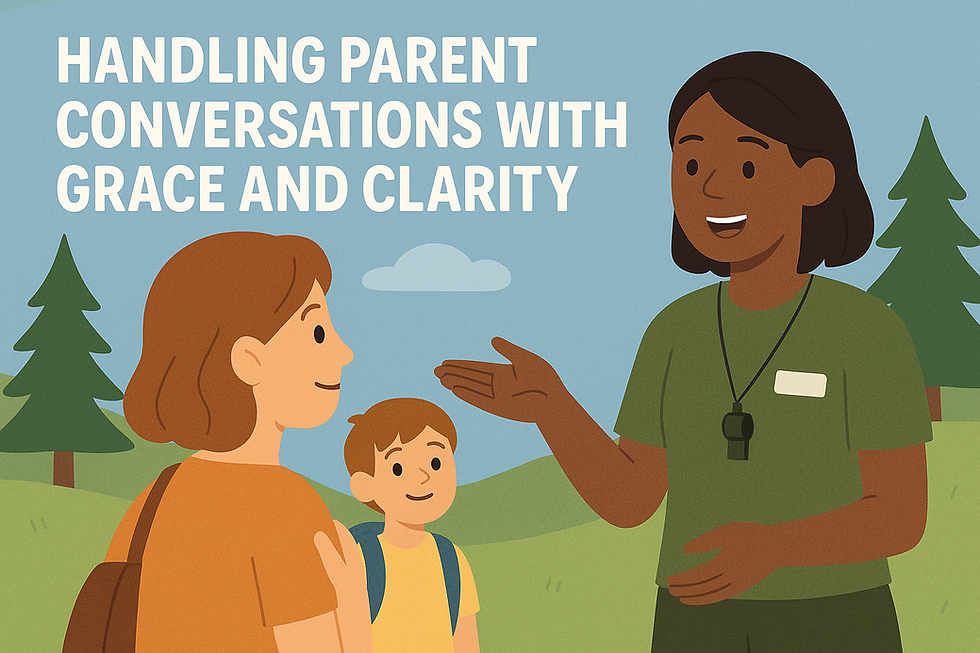From Conflict to Connection: Strategies for Managing Camper Disputes
- Dalbir Singh
- Jul 7, 2025
- 2 min read

Conflict is part of life—and camp is no exception. Whether it’s a disagreement over who sits where at lunch or something more intense like name-calling or physical disputes, camper conflict is something every camp director must prepare for.
The goal isn’t to avoid conflict entirely (that’s impossible), but to transform it into an opportunity for growth, empathy, and deeper connection. Here’s how.
🧭 Understand Where It's Coming From
Before jumping to solutions, it’s essential to recognize what’s fueling the tension. Post-pandemic shifts in behavior have revealed:
Reduced social-emotional skills
Lower frustration tolerance
Difficulty navigating peer dynamics
Campers may not know how to express what they’re feeling, and what looks like defiance may actually be anxiety, overstimulation, or insecurity.
👂 Start with listening. Train your staff to be calm, curious observers rather than quick disciplinarians.
🛠️ Equip Staff with the Right Tools
Conflict management is a skill—and it needs to be taught. Arm your counselors with practical techniques they can use in the moment.
Proactive Tips:
Use names when addressing behavior: “Hey Max, let’s talk about what just happened.”
Practice redirection before escalation: “Let’s take a break and shoot some hoops to cool off.”
Model emotional regulation: Counselors should show what calm looks like.
Camp-Ready Strategies:
Peace Corners: Designate a safe spot for campers to cool off.
Feelings Charts: Help kids name their emotions visually.
Conflict Cards: Quick reference tools with scripts for resolving disagreements.
🤝 Restore, Don’t Just Discipline
Traditional punishment rarely addresses the root of camper disputes. Instead, integrate restorative practices that focus on repair and reflection.
Try This:
Host a “circle talk” for campers involved in conflict. Let each one share their perspective without interruption.
Ask reflective questions like:
“What happened?”
“How did it make you feel?”
“What do you need to feel better?”
The goal? Not just stopping the fight—but strengthening relationships.
💬 Keep Parents in the Loop (But Not in the Fire)
When camper conflict gets big enough to report, make sure your team communicates clearly, calmly, and compassionately with parents. Share:
What happened
What steps were taken
How their child was supported
This builds trust—not alarm.
🏕️ Turn Moments of Tension Into Moments of Growth
Conflict at camp is inevitable. But with the right approach, those rough moments can turn into powerful lessons that campers carry home: empathy, communication, and self-awareness.
Camp isn’t just where kids play—it’s where they learn how to belong.




Comments